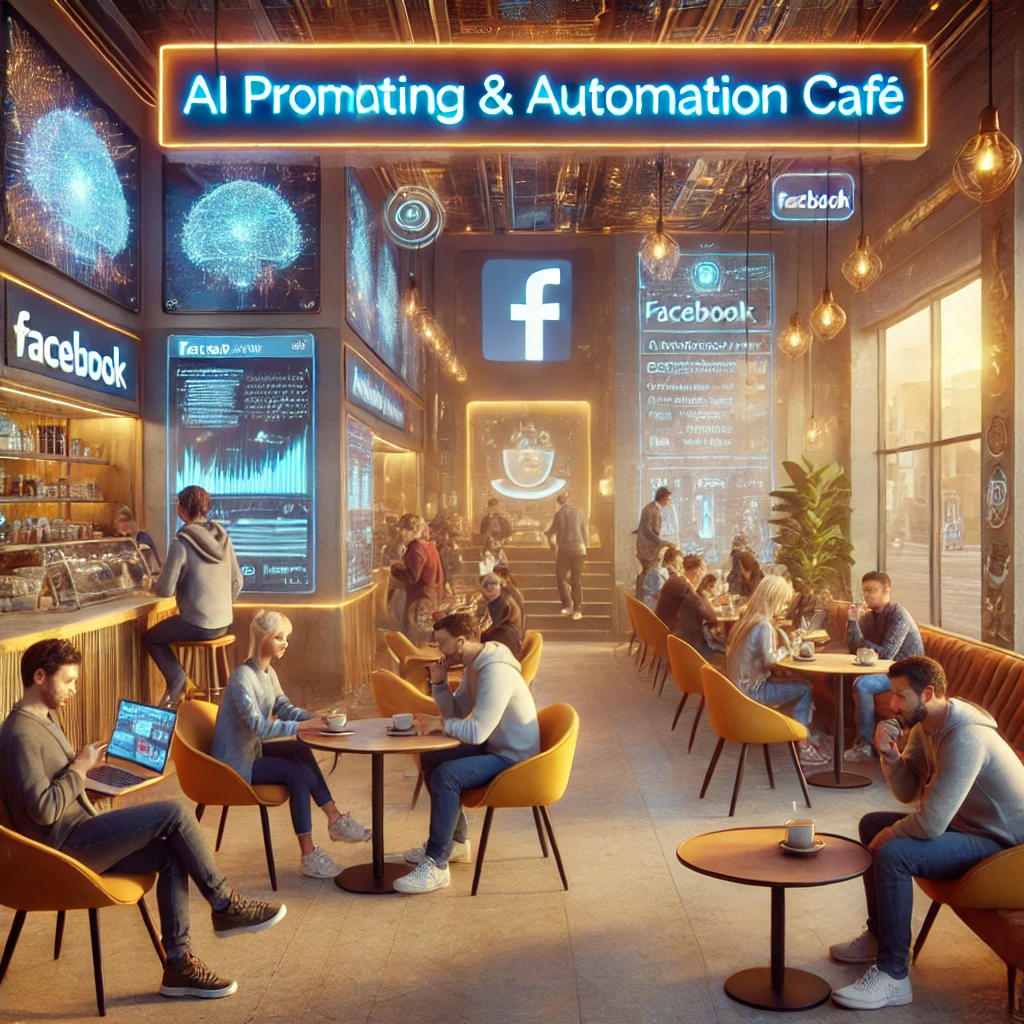Introduction
Artificial Intelligence (AI) is not just a futuristic buzzword—it’s the driving force behind the transformation of digital marketing strategies in the 21st century. From automating campaigns to delivering personalized experiences at scale, AI is providing marketers with powerful tools to engage consumers more effectively and efficiently.
This blog post explores insights derived from recent research on how AI is revolutionizing digital marketing strategies, focusing on practical applications and the measurable impact on key marketing components such as customer engagement, content creation, and campaign optimization.
AI in Digital Marketing: A Game Changer
Digital marketing has evolved rapidly over the past decade, but the incorporation of AI has accelerated this change dramatically. Unlike traditional methods that rely heavily on manual processes, AI-powered strategies offer smarter, faster, and more precise marketing execution.
1. Enhanced Consumer Behavior Analysis
Understanding customer needs and behaviors is essential for effective marketing—and AI excels in this area.
- Predictive analytics: AI utilizes large datasets to predict future consumer behaviors based on historical trends, allowing marketers to craft proactive strategies.
- Sentiment analysis: AI tools can analyze social media and customer reviews to gauge public sentiment and adjust messaging accordingly.
- Customer segmentation: Sophisticated algorithms divide target audiences into micro-segments, ensuring hyper-personalized marketing.
The ability to process and analyze vast datasets in real time helps brands shift from reactive to predictive marketing, enhancing both engagement and conversion rates.
2. Personalization at Scale
Consumers today expect tailored experiences—and AI makes it feasible for brands to meet these expectations at scale.
- Dynamic content delivery: AI engines tailor website content, emails, and product recommendations based on user behavior and preferences.
- Email marketing automation: AI personalizes email headers, content, and sending times for each recipient, improving open and click-through rates.
- Smart chatbots: AI-powered chatbots use Natural Language Processing (NLP) to understand and respond to customer inquiries in a human-like manner.
By enabling real-time personalization, AI strengthens customer relationships and increases loyalty.
3. Automated Content Creation
Content is still king—but creating content that resonates with diverse audiences can be resource-intensive. AI is stepping in to ease the load.
- Natural Language Generation (NLG): Tools like GPT-4 can produce coherent, SEO-optimized blog posts, ad copies, and product descriptions with minimal human intervention.
- A/B testing content: AI assesses various content formats and headlines to determine which drives the most engagement.
- Multimedia generation: Visual and audio content can now be automatically created or enhanced using AI tools like DALL·E or Adobe Firefly.
This democratization of content creation is especially beneficial for small businesses looking to scale without massive marketing budgets.
Optimizing Campaigns in Real Time
AI not only helps in designing and launching campaigns but also plays a crucial role in their real-time optimization.
1. Real-Time Ad Bidding and Performance Monitoring
Programmatic advertising platforms use AI to automate the buying of ad spaces in real time, ensuring ads are shown to the right people at the right time.
- Optimal bidding: AI allocates budget dynamically across channels based on real-time data, maximizing return on ad spend (ROAS).
- Target audience refinement: AI continuously learns from campaign results to improve audience targeting over time.
- Performance alerts: AI tools can notify marketers immediately when KPIs fall below benchmarks, enabling a faster response.
By automating these processes, AI helps marketers achieve higher efficiency and better ROI.
2. SEO and Content Optimization
AI tools are now central to search engine optimization, interpreting algorithms, and adjusting content strategies accordingly.
- Keyword research: AI-powered tools analyze competitor websites and emerging trends to provide keyword recommendations with high search intent.
- Content audit: AI assists in evaluating website performance and identifying pages that need improvement or updating.
- Voice search optimization: With the rise of digital assistants, AI can help tailor content to better match voice search queries.
The shift from keyword stuffing to intelligent, user-centric content underscores how AI is redefining SEO best practices.
Transformation of Customer Service Experiences
Customer service is a vital component of digital marketing, and AI is revolutionizing how brands manage customer interactions and feedback.
1. AI Chatbots and Virtual Assistants
Chatbots are one of the earliest and most prevalent AI applications in digital marketing.
- 24/7 customer support: AI chatbots offer around-the-clock assistance, eliminating the lag in query resolution.
- Data collection: Bots can gather valuable customer data during interactions, helping to refine future marketing strategies.
- Lead qualification: AI assists in identifying high-quality leads through pre-qualification questions, improving sales conversion rates.
With rapid improvements in NLP, chatbots are becoming increasingly effective at providing high-quality user experiences.
2. Sentiment and Feedback Analysis
AI plays a crucial role in monitoring how customers feel about your brand.
- Social listening tools: Platforms like Brandwatch and Sprout Social use AI to sift through millions of social mentions for sentiment insight.
- Customer satisfaction scoring: AI algorithms assess reviews and survey responses for emotional tone, revealing satisfaction trends.
- Crisis prevention: Early detection of negative trends allows brands to intervene before minor issues escalate.
This proactive approach ensures better brand reputation management and more meaningful customer relationships.
Data-Driven Decision Making
One of AI’s most transformative contributions to digital marketing is enhanced decision-making powered by quality data insights.
1. Data Integration and Unification
AI can unify fragmented data sources into a centralized database, providing a single customer view.
- Cross-channel metrics: View campaign performance across email, social media, paid ads, and websites—on a single dashboard.
- Customer journey mapping: AI-generated visuals show each touchpoint a consumer experienced before converting.
- Marketing mix modeling: AI can attribute marketing success to specific channels, revealing the best investment areas.
These insights empower marketers to refine strategies and allocate resources more effectively.
2. Ethical Use of Data and AI
As AI becomes more integrated into marketing, ethical considerations and data privacy are front of mind for businesses.
- Compliance with GDPR and CCPA: AI solutions must ensure consumer data is collected and processed in legal ways.
- Bias mitigation: Marketers must monitor AI outputs to eliminate algorithmic biases that could harm brand image.
- Transparent AI practices: Informing customers about AI involvement in personalized services enhances trust and loyalty.
Marketing platforms are investing in explainable AI to ensure they remain compliant and consumer-friendly.
Conclusion
AI is not just an add-on to digital marketing—in many ways, it is the strategy itself. By enhancing personalization, automating labor-intensive processes, and providing real-time analytics, AI empowers brands to deliver more relevant and impactful campaigns. As adoption rates increase and algorithms become more sophisticated, the future of digital marketing will hinge on businesses’ ability to seamlessly integrate AI into their strategies.
To stay competitive in today’s digital marketplace, marketers must embrace and adapt to this AI-driven evolution. What was once optional is now essential: AI is redefining what’s possible in digital marketing, and the businesses that leverage it wisely will be tomorrow’s industry leaders.






